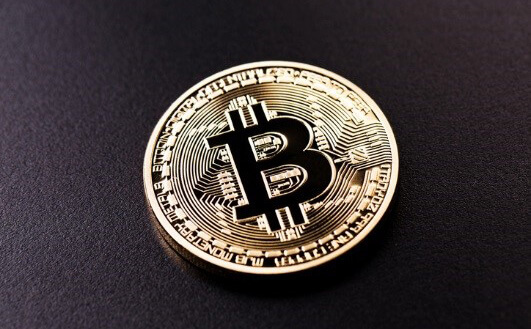Bitcoin’s journey is the stuff of legend. From complete obscurity 10 years ago, to, in 2017, price parity with gold via a series of collapses, large-scale theft and a very famous pizza purchase.
Today, after nearly a decade of tumultuous growth, it is recognised as a mainstream currency. Central banks acknowledge it could be the future of money, FX markets trade in it. Retailers allow customers to buy in bitcoin and individuals across the world are transacting and investing.
For the uninitiated, bitcoin is a cryptocurrency, essentially money that only exists in the digital space as there is no physical equivalent unlike pounds, dollars and euros. This, and its relationship to the blockchain security protocol, makes it extremely secure at a basic level.
The blockchain cannot be hacked and, so far, frauds involving bitcoin have taken place through software layered on top, not by compromise the blockchain itself.
Michael James, head of technical architecture at Altus Consulting, explains: “Blockchain is a shared ledger that records and validates the sequence of transactions. It’s unique ‘use case’ feature is that the ledger can be copied to hundreds of thousands of computers.
“Anyone can add new transactions at any time, and everyone can agree the sequence and value of each transaction. The most important security feature is that it is based on cryptographic encryption and has so far proved impossible to hack.”
Bitcoin was not the first idea to harness the power of the blockchain, but it is the most famous and successful. This, despite a dispute over how it was created and who can rightly claim to be the founder.
Just how did we get here? The history of the world’s most famous cryptocurrency is shaped by a number of important dates. Here we chart the events that created a financial phenomenon:
August 2008
Charlies Bry, Neal Kin and Vladimir Oksman file an encryption patent application in the US. The same month they register the Bitcoin.org web url.
October 2008
An enigmatic individual (or individuals) calling himself (or themselves) Satoshi Nakamoto publishes a nine-page white paper called “Bitcoin: A peer-to-peer electronic cash system”. It outlined, for the first time, a blueprint for a digital distributed money platform.
Nakamoto’s blueprint demonstrated how the system could be protected from copies, thereby giving it scope to develop into a mainstream currency without criminal interference.
In his introduction, Nakamoto described the system in the following terms:
A purely peer-to-peer version of electronic cash would allow online payments to be sent directly from one party to another without going through a financial institution.
Digital signatures provide part of the solution, but the main benefits are lost if a trusted third party is still required to prevent double-spending.
We propose a solution to the double-spending problem using a peer-to-peer network. The network timestamps transactions by hashing them into an ongoing chain of hash-based proof-of-work, forming a record that cannot be changed without redoing the proof-of-work.
The longest chain not only serves as proof of the sequence of events witnessed, but proof that it came from the largest pool of CPU power. As long as a majority of CPU power is controlled by nodes that are not cooperating to attack the network, they’ll generate the longest chain and outpace attackers.
The network itself requires minimal structure. Messages are broadcast on a best effort basis, and nodes can leave and rejoin the network at will, accepting the longest proof-of-work chain as proof of what happened while they were gone.
January – October 2009
Bitcoin becomes real with the launch of the first open source bitcoin client and release of bitcoins. Nakamoto is credited with ‘mining’ the first 50 bitcoins. The first transaction involving the currency also happens later in the month.
In October, bitcoin is valued against traditional currencies. Its initial value is just over 1.3 bitcoins to the dollar.
May 2010
Despite this valuation, bitcoins remained to all intents and purposes valueless. A major vulnerability in the currency discovered in August 2010, showed that it wasn’t developed enough to be traded with confidence.
Yet, in May, the first proper bitcoin transaction happened. Florida-based programmer Laslo Hanyecz offered 10,000 BTC to whoever would buy him two pizzas from Papa Johns. Someone in Britain volunteered.
At time of writing that amount of coin is valued at just over $23.5 million, or nearly $12 million per pizza and a tasty $1 million per slice. The event, which happened on 22 May, is now celebrated across the bitcoin community as “Bitcoin Pizza Day”.
February – June 2011
Bitcoin’s steadily increasing value suddenly explodes. In February, it achieves parity with the dollar, but by June the coin is worth £31 a pop. Around this time, bitcoin’s total market cap hits $200 million.
In April, Satoshi Nakamoto disappears off the bitcoin radar. No one ever reported seeing or hearing from this elusive character because ‘his’ communications only ever happened via email and chat rooms. But in a final communication he left Gavin Anderson in charge of the project as lead developer.
2013
Bitcoin enjoys a wave of global publicity via newspapers, magazines, websites and TV; but at the same time its legitimacy is being tested.
First, by the growth of illicit ecommerce website The Silk Road, which used bitcoin to cloak criminal transactions involving weapons and drugs. Secondly, by a serious theft of $375,000-worth from a digital wallet owned by a Bitcoin forum founder known as allinvain.
Even so, the currency’s value soars to more than $700 by the end of the year, with investors easily netting 1,000% returns and more.
2014
Bitcoin hits the mainstream with several major developments. Among them, gaming company Zenga begins permitting in-game purchases using the currency, while Las Vegas casinos also agreed to accept it for bets.
In June, the St Petersburg Bowl in Florida agreed a two-year sponsorship deal with BitPay, a bitcoin service provider. The following month Dell became the next big name to start accepting the currency, joined by Microsoft’s Xbox in December.
2015
Two big money venture capital deals at the beginning of the year provide more evidence of the bitcoin opportunity. In January, Coinbase raised $75m; a figure topped in march with a $116 million funding round by 21 Inc.
In August, with 160,000 merchants now accepting bitcoin, Barclays became the first high street bank to jump on-board, allowing users to make charitable donations in the currency.
2016 and beyond
Bitcoin becomes further entrenched in mainstream finance, but vulnerabilities remain. The Bank of Japan and games download site Steam both began transacting in the coin, but in August another high-profile heist costs exchange Bitfinex a reported $60 million.
In the first part of 2017, bitcoin’s value continued to grow. Today, one bitcoin is worth more than an ounce of gold. In July, a single bitcoin became worth 2,282 US dollars, making the pizza’s purchased in 2010 look extremely poor value for money.
There are more than 10,000 projects related to bitcoin on the Github platform, making it one of the busiest areas of tech development in the world. And, with ever greater numbers of institutions warming to the currency, its future looks bright.
How is bitcoin impacting online gaming?
2016 was a breakthrough year for bitcoin’s relationship with the online gaming industry. While several organisations adopted the currency earlier, the major outfits moving into bitcoin territory signalled a new era for bettors and operators alike.
Early adopters included downtown Las Vegas outfits The D Casino and Golden Gate Casino, who opened their doors to bitcoin bettors in January 2014.
The benefits of bitcoin to the gaming industry on and offline are clear. The currency is easy to use, secure and can be easily converted into credits for betting. Not only that but bricks and mortar casinos can reduce their exposure to cash, with fewer customers carrying physical money around in purses and wallets.
Back in 2014, Derek Stevens CEO and owner of the casinos said he was “proud” to be an early adopter in the race for new technological solutions in gaming.
He said: “I’m proud that the D and Golden Gate will be the first casino properties to accept Bitcoin. We’re located in the growing high-tech sector of downtown Las Vegas, and like all things downtown, we’re quickly adaptive to new technology. The timing is right for us to launch this initiative, and I’m happy to be able to offer this to our customers.”
Online, Bodog was one high-profile business to start using the currency last year and the move was justified in a blog posted by founder Calvin Ayre on 28 December. In it he made predictions for the gaming sector in 2017 and concluded “bitcoin eats everything”.
“Mark my words,” he wrote,
“bitcoin is eventually going to eat the whole global online gambling industry and the first courses of this meal are already being digested”.
“Quite apart from liberating gambling sites from the anti-competitive dictates of government-imposed payment blocking, the blockchain technology underpinning Bitcoin is rapidly making the role of gaming regulators obsolete.
“Think of it: with the blockchain documenting every financial transaction, spin of a roulette wheel and roll of the dice, gamblers can act as their own regulators, with any examples of shady behaviour on full display for all the world to see and market forces punishing any operator stupid enough to think they can get away with it.
“There are lots of things that Bitcoin has been predicted to make redundant, but I’m guessing the concept of ‘trust’ wasn’t high on most of these lists. Yet here we are.”
He claims bitcoin’s strength is enhanced by the “reckless” policies of central bankers in Europe and the US, adding it has become a “safe haven” for investors akin to gold. Activity in the bitcoin space is breeding legitimacy after a period in which it was tarred by black market dealings and considered open to exploitation by criminals.
The gaming industry, which is highly regulated on both sides of the Atlantic and as a result adopts a cautious approach, needed this legitimacy to adopt the coin. But there are many other reasons to make the move.
Reasons for rosy relationship
The technology underpinning bitcoin has opened up the market for innovative new ways to play and bet online. One of the first gaming platforms was Dragons Tale, an innovative online casino launched in 2012.
The game has no roulette wheel, cards or virtual dealers, but instead a 3D world modelled on historic Japan. The game features a massive multiplayer interface and a multitude of different scenarios to bet on.
As a global currency, bitcoin isn’t tied to one country and therefore can be used by gamers located in jurisdictions with unfavourable regulations. It is transferred from one entity to another via decentralised peer-to-peer transactions that can be anonymous.
Bitcoin transactions avoid foreign exchange conversions, so that national currencies can be converted quickly and cheaply. This means casinos can charge less commission and provide more incentives to players while maintaining their margins.
It offers transparency – anyone can see transactions that have taken place – because of blockchain technology which cannot be exploited or forged, meaning financial transactions online are more secure. And, because it surpasses banks, players don’t have to give up large amounts of personal data, including their address and financial details.
New operators joining the fray
In April 2017, All 4 Games, the gaming arm of the UK’s Channel 4 TV channel, announced the launch of blockchain-based fantasy trading card game Spells of Genesis (SoG). The game combines strategy with all-action battling sequences.
SoG’s trading cards can be transferred, exchanged and sold, with tokens called BitCrystals which can be used to make purchases. These in turn can be exchanged for bitcoin and sold to exchanges in return for cold hard cash.
At the launch, Shaban Shaame, CEO and founder of EverdreamSoft, which partnered with All 4 Games on the project described SoG as a “paradigm shift” and said he was excited to bring it to the market.
Tone Brennan, executive producer at All 4 Games, highlighted the use of blockchain to secure unequivocal ownership of digital in-game assets.
“The team at EverdreamSoft have done a great job building an exciting and fun fantasy game set in the rich world of Askian,” he said. “By adding the blockchain into the mix, I’m excited to see the impact of this innovative approach to mobile gaming.”
He added that bitcoin’s tie-up with a successful mass-market game would lead to its wider adoption by developers in future.
Other bitcoin-ready ventures in the gaming space include GameCredits and DatCroft Games, which partnered for the development of the game Fragoria, already boasting 8 million registered users. Also newly released is Beyond the Void, a free to play game in which players can buy upgrades. Its creators announced a gaming partnership in October 2016.
The future of bitcoin and gaming
The future of bitcoin and online gaming are inextricably linked. Bitcoin’s rollercoaster success is thanks in part to its relevance and usefulness in online transactions involving highly regulated environments.
Bitcoin-enabled gaming sites have multiplied in a short time and observers expect the trend to continue in coming years, because of its global reach, cost effectiveness, speed of transactions and clarity.
The main barrier to bitcoin’s outrageous growth is its instability. While the currency’s value has soared since 2010, it is vulnerable to regular plunges. These are due to a combination of large sell-offs as investors bank their profits and disagreements as to the future development of the coin.
As recently as July 2017, the cryptocurrency market as a whole tanked nearly 50% from a cap of $115 billion in June to just $63.2 billion on 16 July, before rising steeply again in the following days.
The drop was due to concerns of a split caused by a software update scheduled for the end of July. Several exchange suspended trading to allow for the update to take place. Yet this was the fourth such crash since 2011, according to reports.
But one expert, Spencer Bogart of Blockchain Capital, said the currency was fundamentally strong:
Historically, Bitcoin has had many periods of doubt and uncertainty, its resiliency has consistently been underestimated by the market,”
“While upcoming situation has me relatively concerned, I’m inclined to bet that the market is once-again underestimating BTC’s resiliency.”
A relationship fit to last
Concerns about the currency’s ups and downs aside, its future value to online gaming means it will likely endure and continue its wildfire adoption by operators. Players value their privacy and security, while online casino operators can prevent chargebacks – a term meaning customers reversing their payments – if players lose.
These factors, set against a market which is ever more regulated and in which competition between major operators is fierce, mean the relationship between igaming and cryptocurrencies will likely get stronger as time goes by.
Many technology experts agree that the blockchain, the security platform upon which bitcoin is based, is a gamechanger in the fintech sector and that a growing number of products and services will come to rely on it as a means to make transactions of all kinds faster and safer.
“Blockchain technology has certainly moved on from its anarchic roots and, driven by increasing consumer adoption and awareness, is now being looked at by large financial institutions such as the consortia of global financial institutions led by R3 CEV, as well as regulators, the Bank of England and FCA, and policymakers,” says Adrian Shedden, senior associate at UK law firm Burges Salmon.
Others warn that blockchain has some way to go before it is widely adopted by consumers, particularly when it comes to the technology that overlays blockchain, making it usable by everyday gamers.
“Blockchain is now a mature technology, however, the underlying technological concepts on their own are not enough to create something that people can use easily in their daily lives,” says Paul Hampton, Senior Product Manager at Gemalto. “The development we are seeing around blockchain at the moment is very much focused on making the technology easy for people to consume and use.
Dr Kevin Curran, reader of Computer Science at Ulster University, agrees bitcoin has a few hurdles to get over before the public get full unfettered access, but, once these are out of the way, the currency will see its full potential.
“At the moment, it is not quite ready for the mass market. Buying, selling, storing of bitcoins is still beyond what we can reasonably expect the public to understand. That should change however with new layered solutions which make it easier to buy and use bitcoin. Most technologies become more user friendly over time so that is to be expected of a new mode of currency such as Bitcoin too.
“Banks of course also for the most part need to know who the transacting parties are so the anonymity makes this impossible for now. If there is money to be make in the future, watch them suddenly change this modus operandi.
“For now public confidence is the main stumbling block. What affects confidence mostly is the theft of Bitcoins, failure of Bitcoin exchanges and the mad varying Bitcoin currency fluctuations. Once those become less worrying, then real traction will take place.”
Bitcoin has come a long way since its origins 10 years ago. Like any new invention that disrupts the market, it has created waves and suffered setbacks, but on the whole it has proved early doubters wrong.
There remains a question mark over whether it will maintain its place as the cryptocurrency of choice for gaming companies, but the benefits of the technology are too appealing for casino operators to ignore.
Bitcoin’s sky-high value is a testament to its success and though its price soars and crashes, the overall trend is up. As long as gamers and casino owners agree on bitcoin’s suitability for the sector, it’s hard to imagine this trend reversing.













